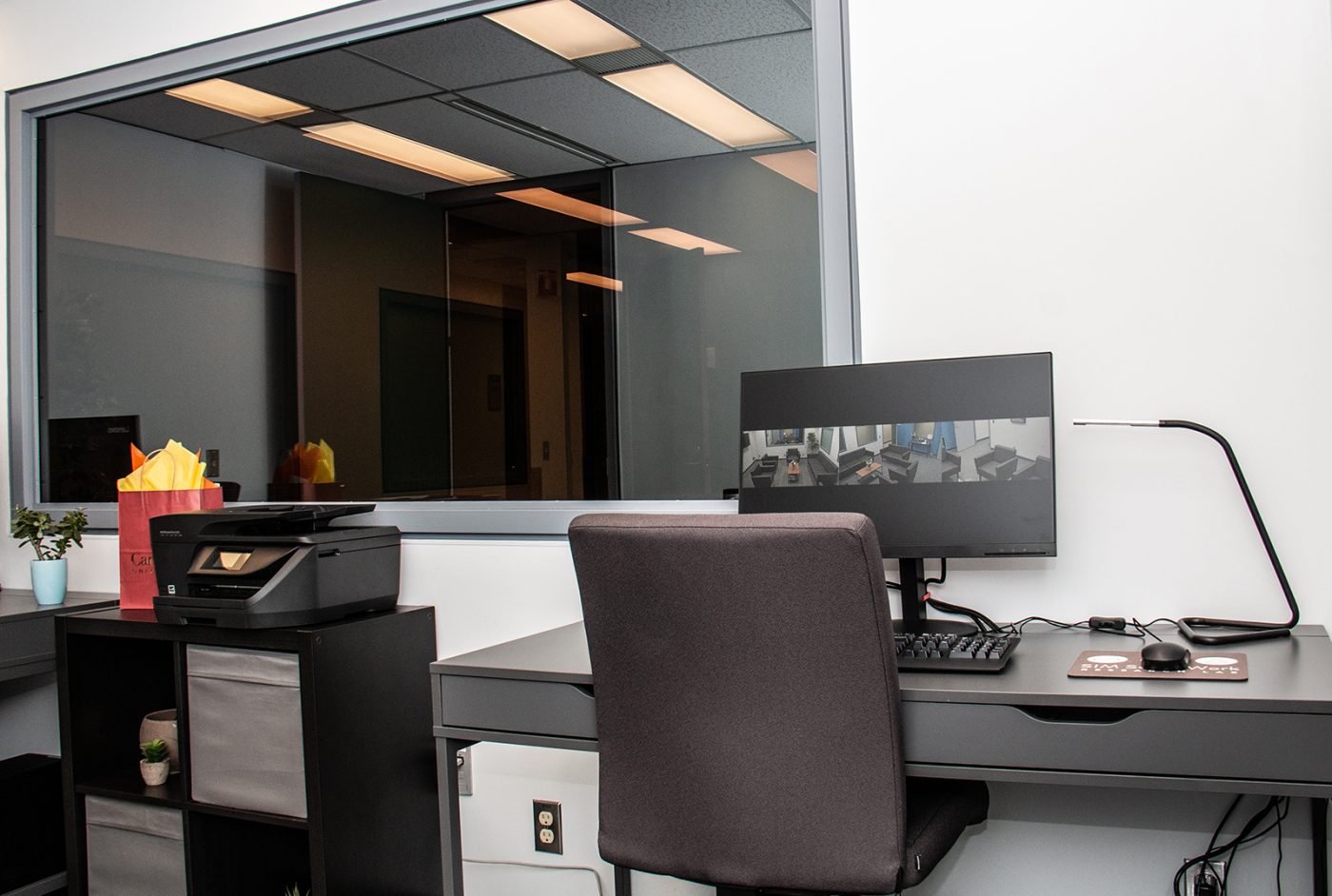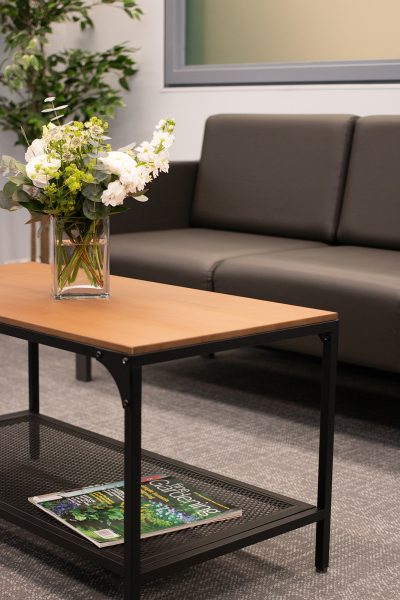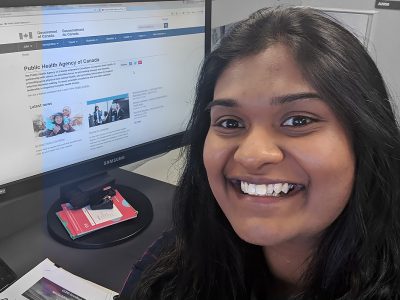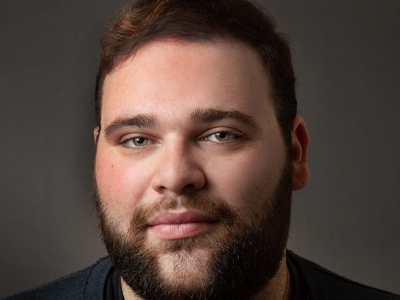Social Work Professors Kenta Asakura and Sarah Todd are using their clinical lab to analyze the components of an effective counselling session.
By Karen Kelly
Photos by Bryan Gagnon
What makes someone a helpful social worker—someone clients trust? Is it their thoughtful questions? Their body language?
As educators who are preparing students to be professional social workers, Kenta Asakura and Sarah Todd are asking these questions in Carleton’s new clinical social work lab. It’s enabling them to assess the nuances of interactions between social work students, and practitioners, with simulated clients.
“We are studying implicit elements of practice—those aspects that are hard to observe,” explains Asakura. “In one study, we want to look at moments of uncertainty and how social workers negotiate those moments, because those little things matter in practice.”
For a seasoned social worker, finding the right response to a client might seem intuitive. But Todd and Asakura think it’s more than intuition—that it can be learned.
They’re asking their students to identify a moment of uncertainty during a counselling session and then review it. The team is watching for the small cues that distinguish more experienced practitioners from someone with less experience.
“Social workers need to navigate uncertainty and not rush to have an answer,” explains Todd. “In fact, previous research has found that experienced practitioners are more likely to embrace uncertainty.”
A Unique Laboratory
These studies are taking place in a unique space—the only social work-specific simulation-based research lab in North America.

Observation station
The SIM Social Work Research Lab (SIM stands for Strengthen, Innovate and Mobilize) enables students and practitioners to participate in research to engage with simulated clients—whether an actor or through artificial intelligence technology—while researchers record the session and observe through a one-way mirror and AV technologies. The lab was created with the help of a $143,000 grant from the Canadian Foundation for Innovation.
It will also enable Asakura and Todd to analyze the use of Artificial Intelligence as a teaching method. The lab will allow students to conduct an interactive simulated counselling session with an AI-based virtual client.

Counselling room
“This allows us to practice working with clients who navigate different life experiences without experimenting on human beings and potentially harming them,” explains Todd.
Ironically, one of the main goals of this work with AI-based simulation is to better understand humans.
“We are advocating a more human-based approach to the work,” explains Todd. “One of the tenets of social work is the strong collaborative relationship between the social worker and the client as two people who are struggling together.”
The research will eventually extend to community partners, as well. Their hope is to strengthen social work practice both on and off the university campus.
For more information about the SIM Social Work Research Lab, visit: carleton.ca/socialwork/simlab. The lab is actively recruiting PhD students and community partners.
Sarah Todd Wins National Teaching Award
In addition to her work with the SIM Social Work Research Lab, Sarah Todd is known for her approach to teaching. She recently won a 3M National Teaching Fellowship, which recognized “exceptional contributions to teaching and learning in Canadian post-secondary education.
Read more about Sarah Todd’s teaching award.
Monday, March 25, 2019 in Faculty Research, FPA Voices
Share: Twitter, Facebook



